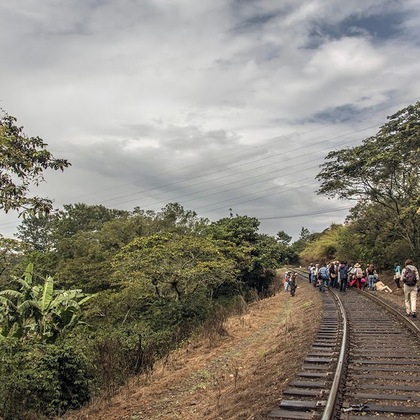Schwerpunktredaktion: Ulli Vilsmaier, Gerald Faschingeder, Juliana Merçon
Print ISSN: 0258-2384│Online ISSN: 2414-3197
Learning from Paulo Freire for Inter- and Transdisciplinary Research
- Abstract
Introduction
The Semantics of Transformation: Conceptual Work for Inter- and Transdisciplinary Research based on Paulo Freire’s Approach to Literacy
- Abstract
- Keywords
As collaborative and boundary-crossing forms of research, inter- and transdisciplinarity hold great potential to reframe and rename phenomena or problems that cannot be fully understood within individual perspectives. Nevertheless, a common problem within heterogeneous teams is creating mutual understanding of different concepts, perspectives and bodies of knowledge. Tis is particularly the case when tackling highly normative subjects, as is the case within sustainability sciences. In this contribution, we analyse the principles and practices behind Paulo Freire’s approach to literacy and explore their potential to develop integrative methods for conceptual work in inter- and transdisciplinary research. We identify three principles in his epistemology (words as generative, knowledge as dialogue and naming as political) and discuss how they address not just technical, but relational and political dimensions of conceptual work. We use the example of creating a joint glossary to illustrate how the principles can be operationalised.
Knowledge integration, mutual understanding, dialogue, sustainability, normativity
Walking through Time and Territory: A Proposal for Participatory Action Research based on Movement
- Abstract
- Keywords
Transformative co-educational processes through multi-stakeholder collaboration require methods by means of which differences between participating actors can contribute to building common grounds. Transformative Learning Tours is a method that promotes movement in time and space, creating common grounds through the constant dialogue between collective reflection and practice, or praxis. This method of exchange of experiences is based on a peasant-to-peasant approach and the concept of movement as a means to strengthen human (and non-human) connections, by balancing the senses in the learning process. Inspired by the agroecological caravans in Brazil, the tours integrate art, music, and envisioning as important elements of action research. During this process, peasants and other community members become knowledge experts, opening spaces for more horizontal dialogues. Participants critically read the past and collectively dream about a future. This article describes the Transformative Learning Tours method and how it in corporates Freirean principles. We reflect upon the scope and limitations of this method in the specific context of the Forest Stewards Network in Xalapa, Mexico. We share the method’s different stages, principles and conditions, as well as the type of facilitation and context that have enhanced this process, while positioning movement as an epistemic approach.
Territory, movement, participatory action research, transformative learning, Freire
Systematisation of Experiences as a Methodology of Peasant- Based Action Research
- Abstract
- Keywords
This contribution gives insights into methodological procedures and epistemological results from a transdisciplinary research process with the peasants’ organisation OCEZ-CNPA Chiapas in South Mexico. Its methodology was based on Paulo Freire’s Popular Education (PE) and its related methodologies, Systematisation of Experiences (SoE) and Participatory Action Research (PAR). The central endeavour of the research was the collective reflection on peasants’ agroecological learning experiences and, through a feedback loop, on the same praxis. The reflective practice consisted of action, research and training and thus, generated actionable, epistemological and methodological knowledge. these three interconnected dimensions of knowledge nourished the pedagogical and political praxis of the peasants’ organisation, as well as the practice and theory of transdisciplinary and participatory research in the context of agroecology.
Popular education, participatory action research, Systematisation of Experiences (SoE), agroecology, peasants’ research
Exploring the Human-World Relationship with Generative Picturing: Experiences from a Research Project at a Lower Secondary School
- Abstract
- Keywords
Thee article presents Generative Picturing as a methodological framework for transformative research. Generative Picturing integrates different elements of qualitative methodology with the visual medium of photography in a recursive and participatory process. Exemplifying the application of Generative Picturing in the context of the author’s research with a class of fourth grade lower secondary school students in Vienna, the article offers a practical frame and identifies lessons to be learned.
Generative Picturing, methodological framework, transformative research, participatory research with children/young people, lessons learned
"Act Out Loud!" - Theatre and the Body in Transformative Resarch Praxis
- Abstract
- Keywords
Based on Freire´s principles of transformation, the author conducted a theatre Action Research project with girls* using methods of theatre of the Oppressed as a main tool to collect data. Throughout the article,
the author connects the necessity of rethinking power structures in academia with the importance of using body knowledge in feminist and transformative research and introduces concrete methods and experiences for the application of such a research.
theatre Action Research, body knowledge, theatre of the Oppressed, feminist research, transformation

